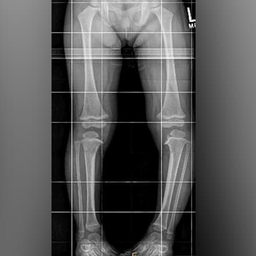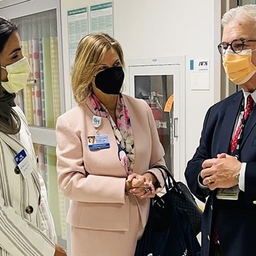Search the Newsroom
Filter By
Showing 941 - 950 of 2910 results

Alumni Notes Summer 2022
Remember our CHOP Alumni Motto: Keep … Tradition, Keep … in Mind, Keep … in Touch!

News at CHOP: Summer 2022
Children’s Hospital of Philadelphia awarded its Gold Medal to Katherine High, MD, a gene therapy pioneer and one of the lead developers of the first in vivo gene therapy approved by the U.S. Food and Drug Administration (FDA).
Kawasaki Disease or Mis-C? Outlining the Differences
Ava, a 21-month-old female, presented to her primary care provider’s office with 4 days of fever and a macular rash that started yesterday.
Immune Dysregulation Program: for Patients Who ‘Don’t Read the Textbook’
We all learned some simple patterns for diseases of the immune system when we were in training: immunodeficiency is “too little immune system,” autoimmunity is “too much immune system,” atopy is a “allergic immune system,” and lymphoproliferation is “a rapidly expanding immune system.”

Make the Diagnosis: Summer 2022
TD is a 25-month-old female who presented to clinic with a complaint of bowed legs. Mom reports that throughout infancy, both legs were bowed, but the right one straightened out while the left appears to have worsened.
Understanding Brain Fog in Youth with Fibromyalgia Syndrome
Juvenile fibromyalgia (FM) syndrome is a painful, debilitating type of amplified musculoskeletal pain syndrome that results in nearly total body pain, fatigue, and dizziness, among several other possible symptoms.

Consul General of the UAE in New York Visits CHOP
On June 28, 2022, CHOP welcomed Her Excellency Amna Binzaal Almheiri, Consul General of the United Arab Emirates (UAE) in New York, to observe the world-class experience her country’s patients receive at CHOP. The visit celebrated a long-standing relationship between CHOP and the UAE to improve pediatric care.
Children’s Hospital of Philadelphia Appoints New Chief of Nephrology
Benjamin Laskin, MD, an expert in kidney disease and infection in immunosuppressed children, will fulfill new leadership role.
Meet One of Our Global Health Fellows
Dr. Strysko spent three years full-time in Botswana as a CHOP David N. Pincus Global Health Fellow.
CHOP Hosts the Coalition Against Childhood Cancer’s 2022 Summit
The coalition’s members work to advance a variety of childhood cancer causes by unifying their efforts.